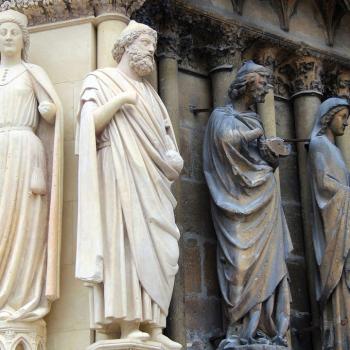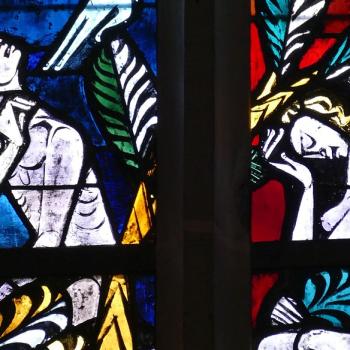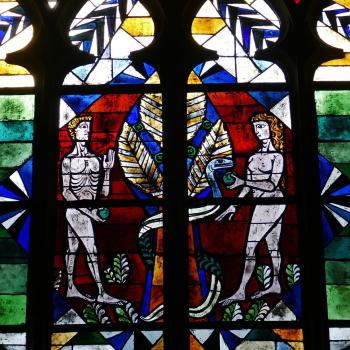
A Science Lesson?
On March 9, 1931, German physicist Ernest Ruska is credited with building the first electron microscope. This came after almost a decade of scientists working around the electromagnetic spectrum. Ruska received the Nobel Prize in Physics in 1986 for his work in the space of electron magnification and the development of the electron microscope.
Fortunately enough for me (and you), I’m not writing about physics or science. Instead, I’m writing how we as the Church in America got here. The history of the Church can be followed by tracing many different threads, but for today, let’s look at one of the ways American Christianity has been moved by the advancements in science.
Science vs. God
There has been an unnecessary divide between religion and science. American Fundamentalism – and many of the parallel institutions – have their roots in the advancements of science. Darwin’s On the Origin of Species ruffled the feathers of Christianity. How we understood the Bible in Protestant circles was under attack. The Church had a choice to make. Would they rethink the Bible in light of new evidence or double down on their hermeneutics?
After Origin of Species was published and circulated, many of the clergy were able to reconcile the new theory with the Bible. English biologist and Catholic George Jackson Mivart was a strong proponent of both evolution and Divine creation. Mivrat saw a separation between the evolved body and the divine soul. The moderate and liberal side of Christianity also noted that the Church Fathers didn’t read Genesis literally. This made the who issue a nonstarter.
Fundamentalism in the early 20th century doubled down on the plain reading of the English Bible. This clash between science and religion in America came to a head in 1925 in a small town in Tennessee. John Scopes was a high school science teacher who taught evolution in class. At the time (and up until the mid 1960’s) this was illegal thanks to the Butler Act. While Scopes lost his case, the public opinion was swayed. Fundamentalists lost the ideological battle and were forced to retreat.
Finding Clues
I remember being a junior or senior in high school and being a part of a Fundamentalist VHS ‘college’ that my church hosted. This was a tape based lecture series by a pastor who taught the Hebrew Bible, New Testament, and other ‘electives’ like the anatomy of angels and creationism. This pastor talked about a discovery in science that proved a literal six-day creation story. There is a protein called Laminin that resembles the cross – with 3 chains that branch out at the sides. I forgot this was real until I stumbled across this story.
Much of Fundamentalism hinges on fear of something new challenging their identity. A major opinion within this conservative tradition is ‘if you can’t believe Genesis 1:1, you can’t believe any of it!’. If you grew up Catholic, mainline, or a more progressive Evangelical, this might sound pretty weird. I grew up in this hardline tradition and was on the front lines defending ‘Biblical Creationism’. The problem is that “there is no fear in love, but perfect love casts out all fear.” (1 John 4:18).
The Echo-chamber
In order to keep the theology sound in a changing world, Conservative Evangelicals and Fundamentalists build parallel institutions to reaffirm their positions. This is how we find ourselves with Christian psychology, Christian music and art, and Christian science departments like Answers in Genesis. This parallel life is the first echo chamber – and it’s very effective.
With this mindset (fear and separation), Fundamentalists and Conservative Evangelicals are in danger of falling for conspiracy theories or half truths. The laminin discussion is a perfect example. Because these Christians were looking for a sign of creation, they made a connection. We all do it in our daily lives – but we don’t usually hinge our theology on it. We see historical end times predictions and modern day signs in the sky.
What Now?
As we learn more about the world around us – scientific or historical discoveries – we shouldn’t be afraid that it will disprove God or the Bible. Instead, use each new advancement as a way to encounter and experience a new part of God and ourselves.

















